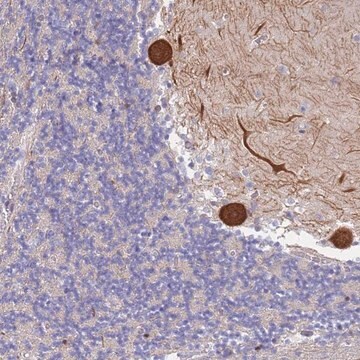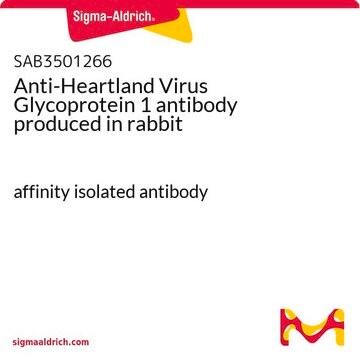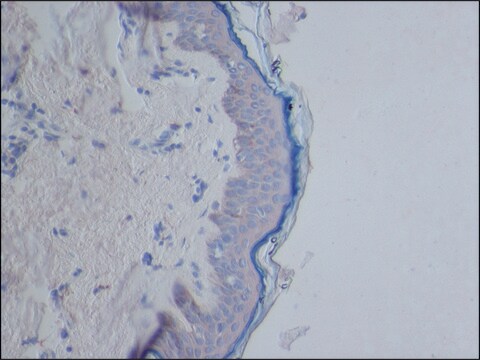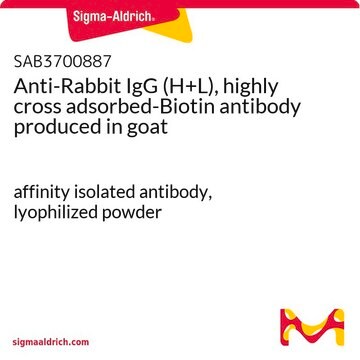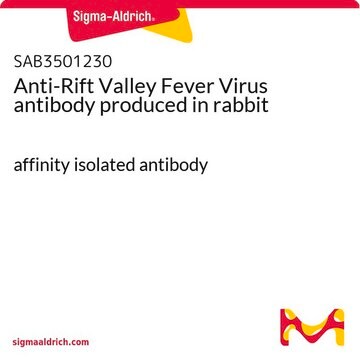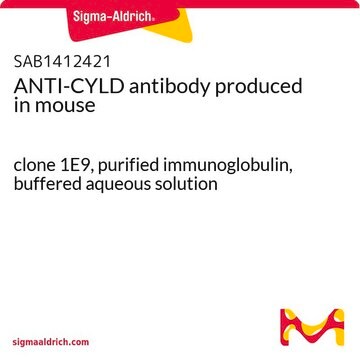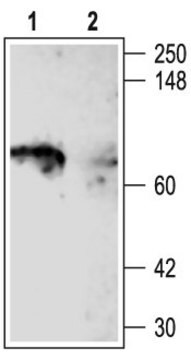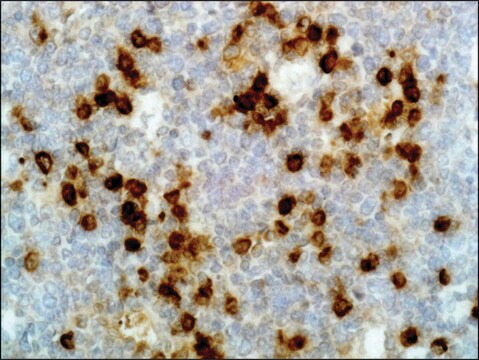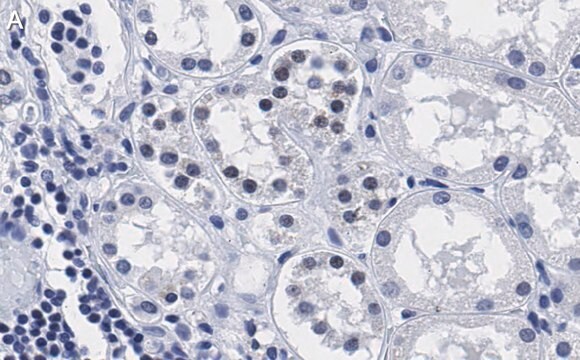SAB4200060
Anti-CYLD antibody produced in rabbit
~1.0 mg/mL, affinity isolated antibody, buffered aqueous solution
동의어(들):
Anti-Cylindromatosis (turban tumor syndrome), deubiquitinating enzyme CYLD, Anti-Ubiquitin carboxyl-terminal hydrolase CYLD, Anti-Ubiquitin specific peptidase like 2, Anti-Ubiquitin thiolesterase CYLD
About This Item
추천 제품
생물학적 소스
rabbit
결합
unconjugated
항체 형태
affinity isolated antibody
항체 생산 유형
primary antibodies
클론
polyclonal
양식
buffered aqueous solution
분자량
antigen ~110 kDa
종 반응성
human, rat, mouse
농도
~1.0 mg/mL
기술
immunohistochemistry: 10-20 μg/mL using heat-retrieved formalin-fixed, paraffin-embedded human skin sections and biotin / ExtrAvidin®-Peroxidase staining system
western blot: 1-2 μg/mL using whole extracts of rat and mouse brain
UniProt 수납 번호
배송 상태
dry ice
저장 온도
−20°C
타겟 번역 후 변형
unmodified
유전자 정보
human ... CYLD(1540)
mouse ... Cyld(74256)
rat ... Cyld(312937)
일반 설명
애플리케이션
Western Blotting (1 paper)
생화학적/생리학적 작용
물리적 형태
법적 정보
면책조항
적합한 제품을 찾을 수 없으신가요?
당사의 제품 선택기 도구.을(를) 시도해 보세요.
Storage Class Code
10 - Combustible liquids
Flash Point (°F)
Not applicable
Flash Point (°C)
Not applicable
가장 최신 버전 중 하나를 선택하세요:
시험 성적서(COA)
자사의 과학자팀은 생명 과학, 재료 과학, 화학 합성, 크로마토그래피, 분석 및 기타 많은 영역을 포함한 모든 과학 분야에 경험이 있습니다..
고객지원팀으로 연락바랍니다.